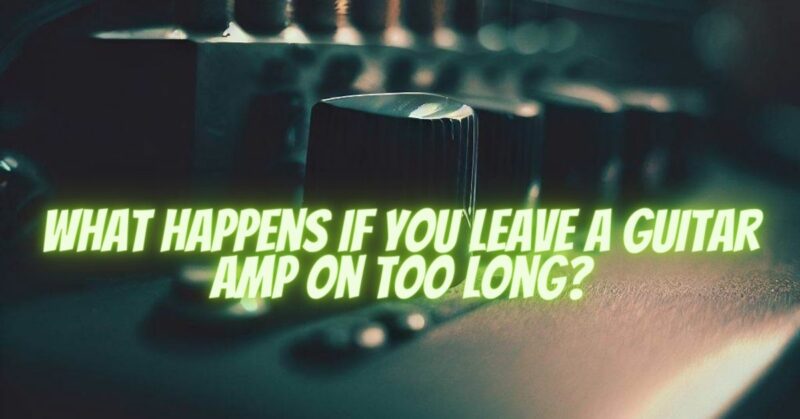As a guitarist, you may be accustomed to long hours of practice or performance sessions, and it’s important to be mindful of the impact it can have on your equipment. Leaving your guitar amp on for extended periods without breaks can have both immediate and long-term consequences. In this article, we will explore what happens when you leave a guitar amp on for too long and provide guidance on maintaining the health of your amplifier.
- Heat Build-Up:
One of the immediate risks of leaving your guitar amp on for an extended period is heat build-up. Amplifiers generate heat as they work to amplify your guitar’s signal. Continuous operation without breaks can cause excessive heat accumulation, potentially leading to damage to sensitive components such as transformers, capacitors, and resistors. Overheating can affect the overall performance and lifespan of your amp.
- Tube Wear and Tear:
If your guitar amp utilizes vacuum tubes, leaving it on for an extended period can accelerate tube wear and tear. Tubes are a critical component of tube-based amplifiers, and they have a limited lifespan. Constantly running your amp without giving the tubes a break can shorten their longevity, resulting in diminished tone, increased noise, and the need for more frequent tube replacements.
- Energy Consumption:
Leaving your guitar amp on continuously when not in use can lead to unnecessary energy consumption. This not only increases your electricity bill but also puts additional strain on the environment. It is advisable to develop the habit of turning off your amp when you’re finished playing or taking breaks to conserve energy and reduce the wear and tear on your equipment.
- Safety Concerns:
Leaving any electrical device powered on for an extended period without supervision poses potential safety risks. There is a small but real chance of an electrical malfunction occurring while you’re away, which could lead to electrical fires or other hazards. To minimize the risk, it is best practice to power off your amp when not in use or when you’re away for an extended period.
Conclusion:
While it may be tempting to leave your guitar amp on for convenience or to maintain your tone between practice sessions, doing so poses risks to the health of your amplifier. Heat build-up, accelerated tube wear, increased energy consumption, and safety concerns are all factors to consider. To protect your investment and ensure the longevity of your amp, it is advisable to develop the habit of powering off your guitar amp when not in use or when taking breaks. By implementing these simple precautions, you can maintain the health and performance of your guitar amplifier for years to come.


